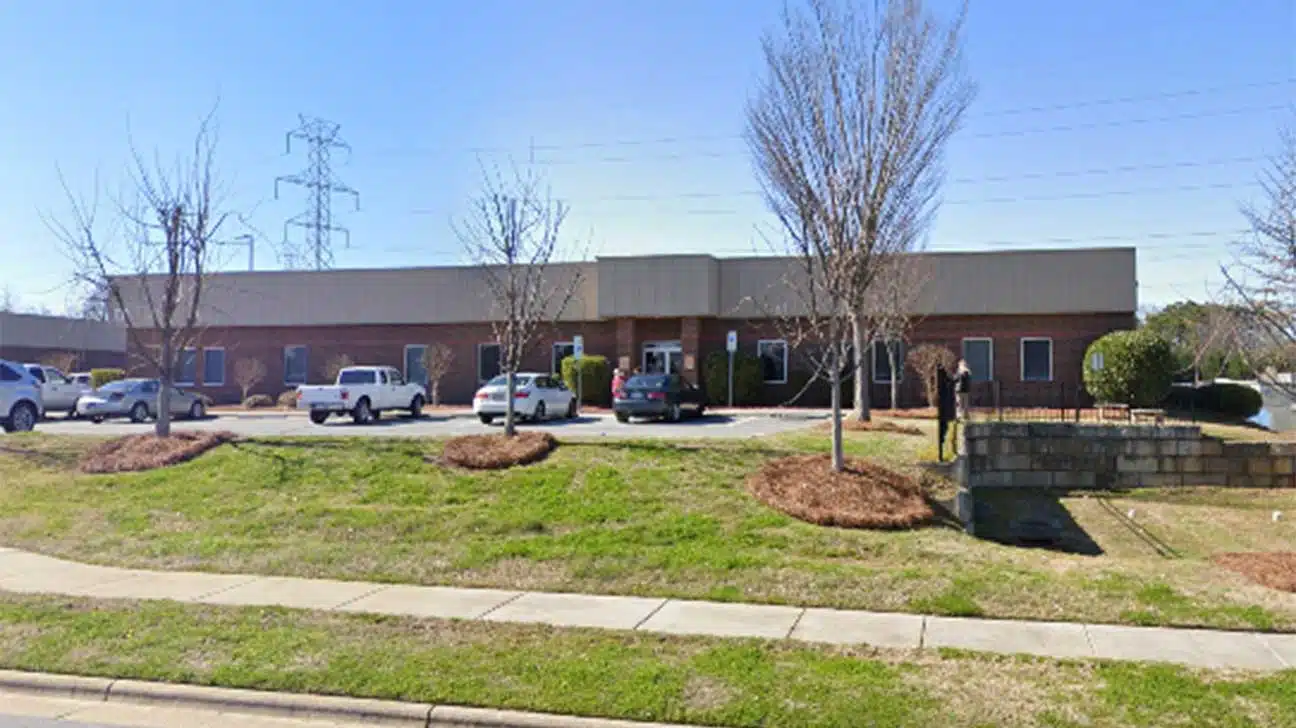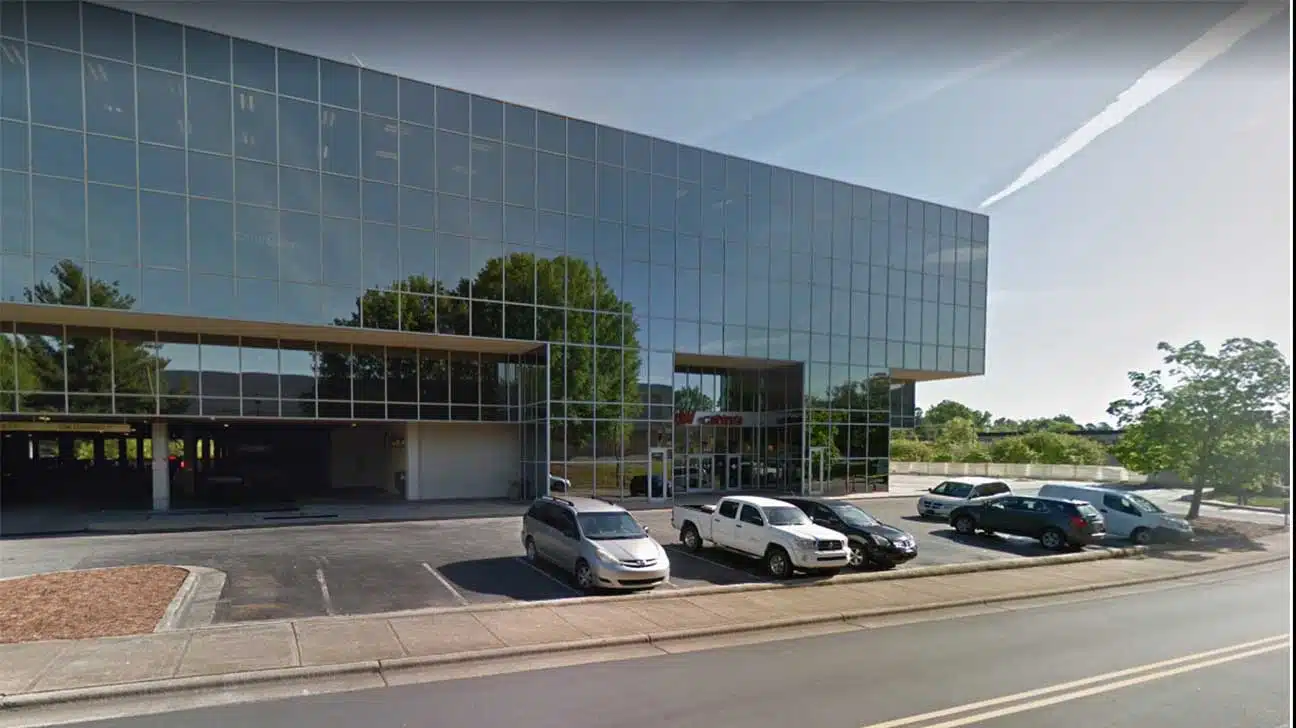
State-funded drug rehab centers in North Carolina accept Medicaid, Medicare, and TRICARE. They also receive state and federal funding and offer grant programs for clients with low incomes.
You can find this level of financial assistance at a number of drug rehab centers in the state of North Carolina.
List Of State-Funded Rehab Facilities In North Carolina
Top state-funded rehab centers in North Carolina feature several trusted qualities and a range of mental health and substance abuse treatments.
We’ve selected the treatment facilities below based on their:
- certifications
- accreditation status
- positive reviews
- Google ratings
- partnerships
1. Addiction Recovery Medical Services (ARMS), Multiple Locations
ARMS offers faith-based and evidence-based treatment approaches for people of all backgrounds.
ARMS helps people overcome drug and alcohol addiction through its Steps to Addiction Recovery Treatment (START) program.
Trusted features:
- Commission on Accreditation of Rehabilitation Facilities (CARF) accreditation
- Substance Abuse and Mental Health Services Administration (SAMHSA) certification
- state licensure
- licensed staff
Levels of care:
- detoxification
- intensive outpatient program (IOP)
- outpatient program (OP)
- medication-assisted treatment (MAT)
Treatment services:
- buprenorphine treatment
- medication management
- 12-step recovery groups
- counseling
- individual therapy
- case management
Payment options:
- sliding fee scale
- TRICARE
- Medicaid
- Medicare
- self-payment
- private health insurance
- government funding
Location and contact information:
536 Signal Hill Dr. Ext.
Statesville, NC 28625
(704) 872-0234
2. Behavioral Health Group (BHG), Asheville, North Carolina
At BHG, clients are placed in the safe, trusted, and capable hands of local doctors, nurses, counselors, and support staff.
BHG is one of the largest networks of outpatient treatment centers in the United States, with locations in California, Missouri, and North Carolina.
Trusted features:
- Joint Commission accreditation
- Substance Abuse and Mental Health Services Administration (SAMHSA) certification
- state licensure
- licensed staff
Levels of care:
- intensive outpatient program (IOP)
- outpatient program (OP)
- medication-assisted treatment (MAT)
Treatment services:
- trauma-informed therapy
- counseling
- telehealth
- individual therapy
- methadone treatment
- medication management
Payment options:
- payment assistance
- TRICARE
- Medicaid
- Medicare
- government funding
- self-payment
- private health insurance
Location and contact information:
18 Wedgefield Dr.
Asheville, NC 28806
(828) 252-8748
3. Daymark Recovery Services Anson County Center, Wadesboro, North Carolina
Daymark Recovery Services provides new substance abuse services, such as tailored care management (TCM).
Over 40 treatment centers are available under the Daymark Recovery Services banner, including this drug rehab facility in Wadesboro, NC.
Trusted features:
Levels of care:
- outpatient program (OP)
Treatment services:
- individual therapy
- deaf and hard-of-hearing services
- counseling
- telehealth
- relapse prevention
- dual diagnosis treatment
Payment options:
- sliding fee scale
- government funding
- Medicare
- Medicaid
- private health insurance
- self-payment
Location and contact information:
704 Old Lilesville Rd.
Wadesboro, NC 28170
(704) 694-6588
4. Insight Partners, Cary, North Carolina
Insight Partners has provided substance abuse treatment for teens and young adults since 1987.
Services are administered through a philosophy called “enthusiastic sobriety,” making sobriety attractive to teens and young adults.
Trusted features:
- state licensure
- licensed staff
Levels of care:
- partial hospitalization program (PHP)
- intensive outpatient program (IOP)
- outpatient program (OP)
Treatment services:
- adolescent treatment
- 12-step recovery groups
- counseling
- trauma-informed therapy
- relapse prevention
- individual therapy
Payment options:
- private health insurance
- self-payment
Location and contact information:
103 Towerview Ct.
Cary, NC 27513
(919) 679-7577
5. Monarch, Albemarle, North Carolina
Monarch employs approximately 1,400 staff members who work with clients and their families to identify and overcome drug addiction.
This organization offers over 20 drug treatment centers throughout North Carolina, including this drug rehab center in Albemarle, NC.
Trusted features:
- Joint Commission accreditation
- licensed staff
- non-profit status
Levels of care:
- outpatient program (OP)
- medication-assisted treatment (MAT)
Treatment services:
- counseling
- dual diagnosis treatment
- telehealth
- individual therapy
- methadone treatment
- medication management
Payment options:
- Medicare
- Medicaid
- private health insurance
- self-payment
Location and contact information:
350 Pee Dee Ave.
Ste. #101
Albemarle, NC 28001
(866) 272-7826
6. Port Health, Greenville, North Carolina
Port Health strives to provide services in a manner consistent with its three pillars: professionalism, compassion, and outcomes.
With over 20 treatment centers in North Carolina, thousands of residents have found chemical dependency services through Port Health.
Trusted features:
- Commission on Accreditation of Rehabilitation Facilities (CARF) accreditation
- state licensure
- licensed staff
- non-profit status
Levels of care:
- intensive outpatient program (IOP)
- outpatient program (OP)
- medication-assisted treatment (MAT)
Treatment services:
- medication management
- buprenorphine treatment
- deaf and hard-of-hearing services
- 12-step recovery groups
- counseling
- individual therapy
Payment options:
- government funding
- self-payment
- private health insurance
- Medicaid
- Medicare
- TRICARE
Location and contact information:
2602 Courtier Dr.
Greenville, NC 27834
(252) 752-0483
7. Walter B. Jones Woodside Treatment Center, Greenville, North Carolina
Walter B. Jones Center is one of two state-operated North Carolina Alcohol and Drug Abuse Treatment Centers (ADATCs).
People can enter live-in care or receive outpatient services for mental health and substance use disorders.
Trusted features:
- Joint Commission accreditation
- Substance Abuse and Mental Health Services Administration (SAMHSA) certification
- licensed staff
- non-profit status
Levels of care:
- residential treatment
- inpatient treatment
- detoxification
- partial hospitalization program (PHP)
- intensive outpatient program (IOP)
- outpatient program (OP)
- medication-assisted treatment (MAT)
Treatment services:
- counseling
- medication management
- naltrexone treatment
- individual therapy
- dual diagnosis treatment
- case management
Payment options:
- sliding fee scale
- Medicaid
- TRICARE
- Medicare
- self-payment
- private health insurance
Location and contact information:
2577 W. Fifth St.
Greenville, NC 27834
(252) 830-3426
How To Get State Funding For Rehab In North Carolina
There are a few options for state-funded payment assistance if you or your loved one don’t have private health insurance to cover behavioral health care.
This includes government-funded health insurance and grant programs. State funding can be utilized to pay for many treatment options.
Government-Funded Health Insurance
You can get Medicare, TRICARE, and Medicaid coverage for addiction treatment in North Carolina.
There is a wide range of treatment available with these government-funded health insurance providers.
A single person earning 135% of the federal poverty level (FPL) may qualify for Medicaid if they have a monthly income of $1,406 or less.
If you meet the income standards, you might qualify for free health care from a state-funded program.
Grant Programs For Treatment Facilities
There are several drug and alcohol treatment centers that get funding from the state government, federal government, and private donors.
These funds are often used to create grant programs, which are funds set aside for people in need of financial assistance.
The Substance Abuse and Mental Health Services Administration (SAMHSA) offers two block grant programs for substance abuse and mental health treatment and prevention.
You can find a non-profit or state-funded treatment center that has a grant program and apply for financial assistance.
Types Of State-Funded Addiction Treatment Programs In North Carolina
Everything from outpatient programs to residential treatment can be found at a state-funded rehab center in North Carolina.
If you’re using Medicaid, your services may vary depending on your specific health plan.
Here are a few of the general services covered by Medicaid:
- inpatient treatment
- outpatient programs
- programs at detox centers
- behavioral therapy
- group, family, and individual therapy
- medication-assisted treatment for opioid abuse
- medication management
- partial hospitalization programs (PHP)
- intensive outpatient programs (IOP)
- individualized treatment plans
- aftercare options
FAQs For State-Funded Drug And Alcohol Rehab Programs
Learn more about payment options and types of addiction treatment programs for people without private health insurance coverage.
Are State-Funded Rehab Centers In North Carolina Free?
You can get free drug rehab services with a state or federally funded program. However, some programs may require a small fee or co-pay.
How Do I Pay For A State-Funded Rehab Program In North Carolina?
There are several ways you can pay for the cost of treatment if you don’t have private insurance.
You can often:
- pay on a sliding scale
- start a payment plan spanning several months
- receive a loan for mental health
- apply for further financial assistance
- use military insurance, such as TRICARE, if eligible
Call the facility’s helpline to ask about payment options.
What If I Can’t Get Into A State-Funded Recovery Center?
If you are unable to get into a state-funded addiction treatment program, you may be able to find a free drug rehab center in the United States.
Find An Addiction Treatment Center Today
To learn more about your options for recovery programs or receive a free referral, call Addiction Resource today.
Updated on January 18, 2024
Addiction Resource aims to provide only the most current, accurate information in regards to addiction and addiction treatment, which means we only reference the most credible sources available.
These include peer-reviewed journals, government entities and academic institutions, and leaders in addiction healthcare and advocacy. Learn more about how we safeguard our content by viewing our editorial policy.
- NC.gov — BASIC MEDICAID ELIGIBILITY
https://files.nc.gov/ncdma/documents/files/Basic-Medicaid-Eligibility-Chart-2019_0.pdf - Substance Abuse and Mental Health Services Administration (SAMHSA) — Substance Abuse and Mental Health Block Grants
https://www.samhsa.gov/grants/block-grants


